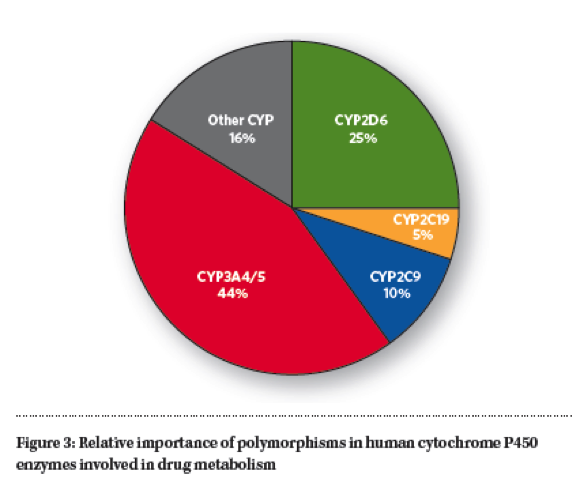What exactly is personalized medicine and why is it important?
First, we need to understand the difference between pharmacogenomics and pharmacogenetics. Pharmacogenomics is the field of study that has developed to study and unravel the complex relationships our genes have upon the drugs we take, and vice versa. Pharmacogenetics is an important part of pharmacogenomics that focuses on the variations in individual genes and how they relate to drug response.
Personalized medicine is a medical model used to tailor treatment for each patient based on a number of factors specific to that individual. This ultimately helps physicians to provide the most effective treatment regime and will help reduce the risk of Adverse Drug Reactions (ADRs).
Two important factors that contribute to how an individual will respond to medication are:
- Physiological factors: age, sex, and pre-existing diseases
- Environmental factors: tobacco and alcohol use, diet, and co-administered drugs
Did you know your genetic make-up is another equally important factor that affects how well you respond to medications? Your genes provide the code for various enzymes that metabolize the drugs you take. A mutation present in one of these genes may have an effect on a drug’s efficacy. Understanding these unique, individual factors will help personalize medicine and aid physicians in choosing the type of drug prescribed and the optimum dosage required for effective and safe therapy.
Testing for common genetic variations may help predict how a patient will respond to their prescribed medication(s). A common type of genetic variation is the Single Nucleotide Polymorphism (SNP). Many of the important pharmacogenomics genes have multiple SNPs that have been studied and well characterized. Detecting these mutations in a patient aids pharmacists and physicians to more accurately predict drug responses.
A large group of pharmacogenomically relevant genes is the cytochrome P450 (CYP) superfamily. The CYP450 genes encode a class of metabolic enzymes found primarily in the liver. These genes are important in the metabolism of many widely prescribed drugs. The cytochrome P450 superfamily has 57 putatively functional genes in humans and 58 pseudogenes.
There are five main cytochrome P450 enzymes:
- CYP2D6
- CYP2C19
- CYP2C9
- CYP3A4
- CYP3A5
These enzymes are responsible for a large portion of metabolic breakdown and the clearance of clinically prescribed drugs.

To learn more about pharmacogenetic testing and how Luminex’s IVD assays for CYP2D6 and CYP2C19 assays may improve your personalized patient treatment, click here.